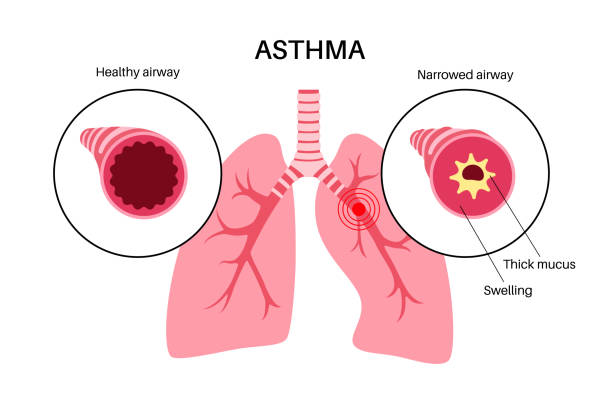In a world where inclusion and empathy should be at the forefront of our minds, young people continue to face hurdles that make them feel isolated and excluded. One such issue is the segregation faced by individuals living with asthma. Today, we bring you the story of Sandra, a brave young girl who is navigating the challenges of asthma while confronting social exclusion from her friends.
Asthma, a chronic respiratory condition, results from a mix of genetic and environmental factors. Common triggers include allergens (pollen, dust mites, pet dander), respiratory infections, tobacco smoke, and pollution. It can cause symptoms like wheezing, coughing, breathlessness, and chest tightness. Poorly managed asthma may reduce lung function and quality of life. Yet, with proper care, including medication and lifestyle adjustments, individuals with asthma can lead fulfilling lives.
The condition affects millions of people worldwide, and its impact extends far beyond physical symptoms. For Sandra, a 16-year-old Secondary school student, the condition has been a constant companion since childhood. However, what has been even more challenging for her is the emotional burden of being excluded from social activities and outings by her friends due to her condition.
Sandra recalls the day she was diagnosed with asthma when she was just eight years old. “I remember the day vividly. It was scary, and I didn’t fully understand what it meant at the time,” she says. Over the years, Sandra learned to manage her condition through medication and lifestyle adjustments. She became well-versed in using her inhaler and keeping her asthma triggers in check. Yet, despite her efforts, she couldn’t escape the stigma attached to her condition.
“My friends would often make plans for outings or weekend adventures without including me,” Sandra shares. “They would say it’s because they were concerned about my asthma and didn’t want anything to happen to me. But deep down, I knew they were just using my condition as an excuse to exclude me.”
Sandra’s experience is not unique. Many individuals living with chronic illnesses, like asthma, face social segregation. While friends may claim to be acting out of concern, the exclusion can lead to feelings of loneliness and isolation, compounding the emotional challenges of dealing with a chronic condition.
Dr. Sarah Igbinigie, a pediatric pulmonologist, emphasizes the importance of understanding asthma and creating an inclusive environment for those living with it. “Asthma can be managed effectively with the right medication and lifestyle choices. It’s crucial for friends, family, and society as a whole to educate themselves about the condition and offer support rather than exclusion.”
Fortunately, Sandra’s story has a silver lining. She decided to speak up about her feelings and educate her friends about asthma. “I realized that it was time for me to be more vocal about what I was going through,” Sandra says. “I started sharing information about asthma with my friends and explaining how they could help if I had an attack. Slowly but surely, their attitudes began to change.”
Today, Sandra’s friends are not only more understanding but also actively involve her in their social activities. “It feels amazing to be part of the group again,” Sandra beams. “My friends learned that asthma doesn’t define me, and I can still have a great time with them while managing my condition.”
Sandra’s story serves as a reminder that compassion and understanding can break down barriers and promote inclusion for individuals living with chronic illnesses. It’s essential for society to support and uplift young people like Sandra, ensuring that they have the same opportunities for friendship and social engagement as everyone else. Asthma may be a part of Sandra’s life, but it certainly does not define who she is or what she can achieve.



